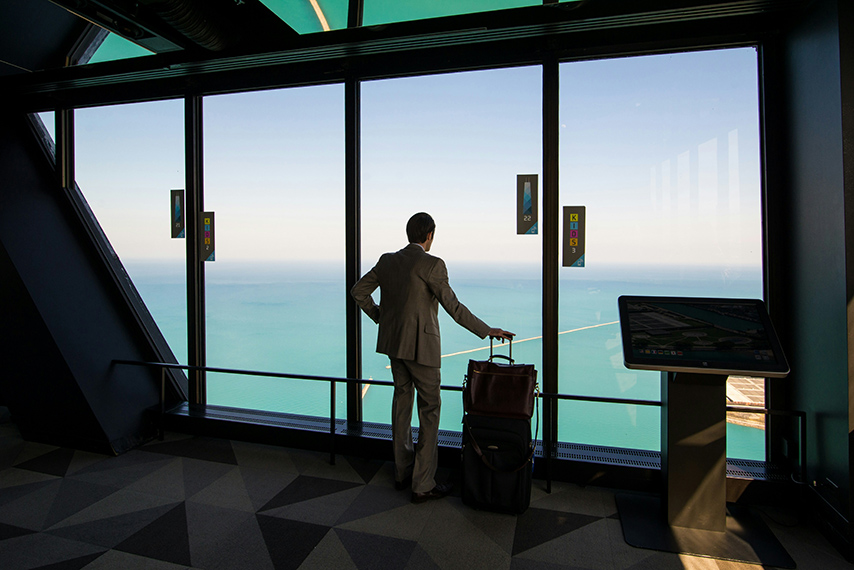By Hoshang Garivala, Country General Manager Ascott India
India’s hospitality sector is undergoing a renaissance, and it’s not just about luxury hotels anymore. A surging popularity in serviced apartments is leading a quiet revolution; this isn’t just a trend, but a newfound fundamental shift in how Indians are traveling and living.
Today’s travellers crave more than just sterile hotel rooms. They seek spaces they feel like home, offering comfort, convenience, and a sense of belonging. Serviced apartments excel here—blending hotel-like amenities with the spaciousness and functionality of a private residence. This demand is driving explosive growth in key urban hubs like Chennai, Bangalore, Hyderabad, Pune, Goa, and Gurugram. The clientele is diverse: business travellers, expatriates, families, and millennials seeking flexible lifestyles.
Driving Forces
Emerging about a decade ago, the serviced apartment sector is rapidly gaining traction in India’s hospitality industry. Its popularity spans major metros and smaller Tier I and II cities. According to the JLL report published in January 2024, key growth factors include increased corporate travel, wedding tourism, MICE (Meetings, Incentives, Conferences, and Exhibitions) events, and emerging markets in Tier II and III cities like Jaipur, Ayodhya, and Surat.
The robust growth of India’s middle class has ushered in a new era of travel habits and expectations. This demographic shift provides a strong economic foundation for the serviced apartment sector. As disposable incomes rise, so does the desire for more sophisticated, flexible accommodation options.
Simultaneously, we’re witnessing a paradigm shift in how people approach travel. The once-clear boundaries between business and leisure trips are increasingly blurred, giving rise to the ‘bleisure’ trend. Modern travellers, especially millennials and Gen Z, are more likely to extend their business trips for personal exploration or combine work responsibilities with vacation time. This new breed of traveller seeks accommodations that can seamlessly transition from a productive workspace to a relaxing retreat.
The COVID-19 pandemic served as a catalyst, dramatically accelerating these evolving preferences. This convergence of economic growth, changing travel philosophies, and pandemic-induced shifts has created a perfect storm for the serviced apartment industry. These properties offer the ideal solution: a ‘home away from home’ that caters to extended stays, provides ample space for both work and relaxation and offers the flexibility to maintain social distancing when needed.
The Serviced Apartment Advantage
Serviced apartments offer a compelling value proposition that addresses the evolving needs of modern travellers:
● Flexibility: Customizable services and adaptable stay durations cater to individual requirements.
● Affordability: For extended stays, these accommodations often prove more cost-effective than traditional hotels.
● Home-Like Comfort: Fully equipped kitchens, laundry facilities, and communal spaces foster a genuine sense of home.
● Community: Shared areas and organized social events create a welcoming environment, nurturing a sense of belonging.
As the serviced apartment sector evolves, its continued growth will hinge on several key factors. Technology integration will play a pivotal role, with smart home features and seamless digital experiences becoming increasingly important to tech-savvy guests. Properties that offer intuitive apps for room control, effortless check-in processes, and robust Wi-Fi will gain a competitive edge.
Simultaneously, the ability to provide personalized experiences will become a crucial differentiator. Tailored services and amenities, such as customized welcome packages, preferred room setups, or bespoke local experiences, will enhance guest satisfaction and foster loyalty.
Furthermore, sustainability initiatives will take center stage as environmental consciousness grows among travellers. Properties that implement eco-friendly practices, from energy-efficient appliances to waste reduction programs, will not only appeal to environmentally aware guests but also contribute to long-term cost savings and positive brand perception. These intertwined factors – technological advancement, personalization, and sustainability – will shape the future landscape of serviced apartments, driving innovation and setting new standards in the industry.
The future of serviced apartments in India looks exceptionally promising. According to a February 2024 report by Crisil Ratings, the hospitality industry is projected to see revenue growth of 11-13% this financial year, driven by steady domestic demand and an increase in foreign travellers.
This rise of serviced apartments is fundamentally reshaping India’s hospitality landscape. They represent more than just accommodation; they embody a lifestyle choice that aligns with the aspirations of today’s travellers. As the sector continues to innovate and redefine hospitality, it stands poised for remarkable growth and transformation. The serviced apartment industry is undoubtedly one to watch in the coming years.












